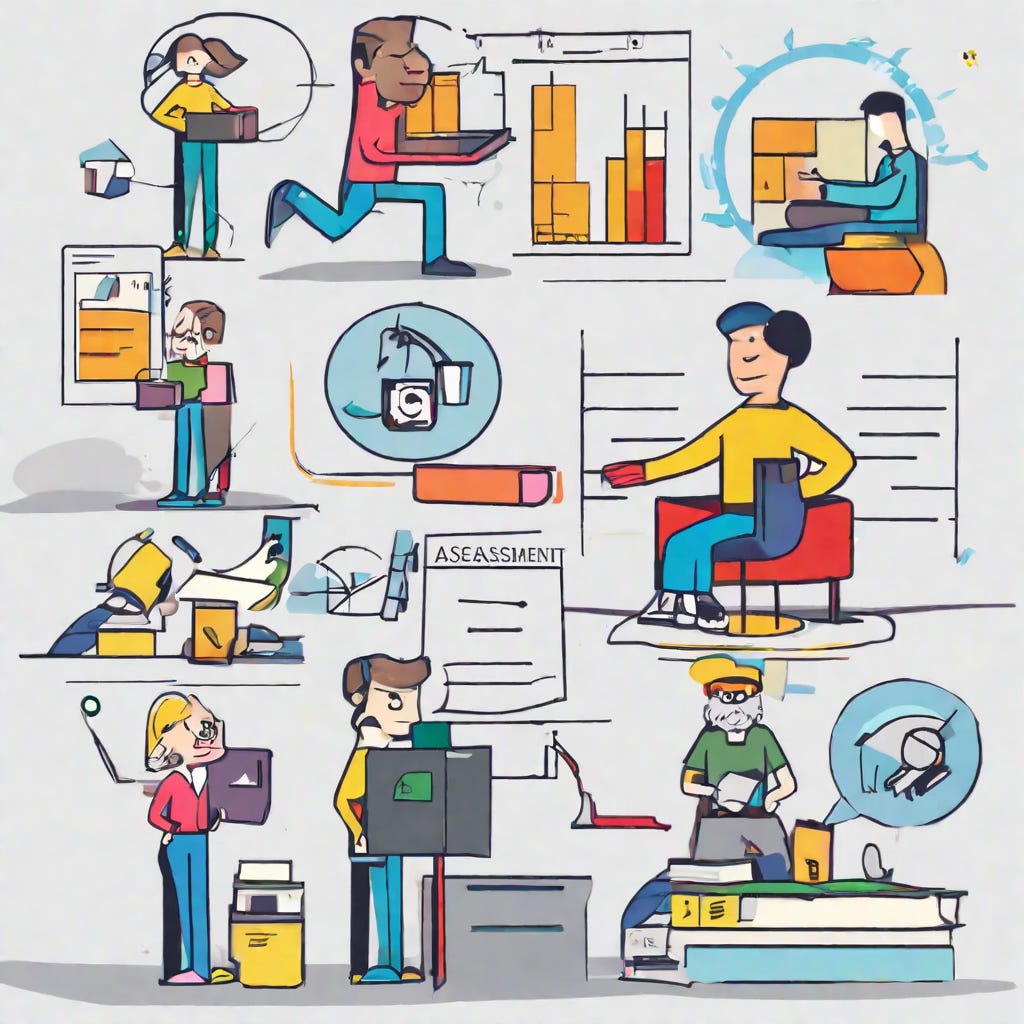Image AI-generated by StableDiffusion
The landscape of work has undergone a significant transformation in recent years, with remote work becoming an integral part of many organizations. As companies adapt to the ever-changing work environment, it's crucial to assess the skills and capabilities of employees, whether they work in a traditional office or remotely.
In this blog post, we'll explore the importance of assessing skills for remote workers and how these assessments can be used in conjunction with those for in-office employees.
In today's tight labor market, hiring top talent has become extremely difficult. Organizations struggle to find candidates with in-demand skills like AI engineering, data science, and cybersecurity. Even more traditional roles are proving persistently hard to fill.
This widening skills gap has massive implications for how companies source, assess, and develop talent. Businesses can no longer rely solely on degrees or past experience to judge candidates. Innovative skills assessment and focused training are imperative.
According to LinkedIn’s 2022 Global Talent Trends report, over 80% of leaders say hiring challenges are impacting their organization while 36% say it's significantly affecting their business.
As remote and hybrid work models become the norm, these challenges extend to current employees as well. Organizations need skills assessment tools and technologies whether staff are office-based or remote.
In this blog post, we’ll explore the growing importance of skills assessment for both new hires and current staff. We’ll also look at how these assessments can be leveraged across in-office and remote work settings.
Remote work offers numerous benefits, such as flexibility and reduced commuting time, but it also presents unique challenges. To be successful as a remote worker, individuals need to possess specific skills and capabilities. Here are some key areas to assess (in order of priority):
Self-discipline: Working remotely requires a high level of self-discipline and time management. Evaluate if candidates can stay focused, meet deadlines, and manage their tasks independently.
Team Collaboration: While remote work can be solitary, collaboration remains essential. Assess whether remote workers can actively engage in virtual brainstorming sessions, contribute to team discussions, and provide valuable insights.
Communication Skills: Effective communication is critical for remote workers. Assess if they can substitute in-person conversations with internet video conferencing and whether they can communicate clearly through written messages. Evaluate their ability to participate in virtual meetings, where non-verbal cues may be limited.
Adaptability: Remote workers must adapt to different communication tools, project management software, and time zones. Assess their ability to quickly learn and adapt to new technologies and workflows.
Problem-solving: Remote workers may encounter unique challenges, such as technical issues or isolation. Assess their problem-solving skills, including their ability to troubleshoot technical problems independently.
Whiteboard Creativity: While in the office, whiteboards are often used for brainstorming and visualizing ideas. Remote workers should have the ability to utilize digital whiteboarding tools effectively.
Building Personal Synergies: Assess whether remote workers can build relationships and synergies with colleagues despite the physical distance. This includes networking, mentoring, and fostering a sense of camaraderie.
Assessment Methods for Remote Workers
I'm an advisor and investor in a company called TeamLift that specializes in providing skills assessment and talent optimization solutions driven by AI for enterprises and tech company customers. They offer a robust SaaS platform designed to evaluate the skills and capabilities of employees and potential candidates within these organizations.
Specifically, TeamLift continuously ingests data from clients' existing HR systems, collaboration tools, and other workflows. Their skills ontology and machine learning algorithms analyze this data to construct comprehensive real-time maps of workforce skills down to the granular capability level.
These AI-powered skills assessments quantify proficiencies based on actual work output and productivity metrics, as opposed to relying solely on surveys or self-assessments. The platform generates data on the skills that employees have and the skills that they need.
For companies adapting to remote and hybrid work models, TeamLift provides skills assessment tools and technologies that can help companies find and hire the best talent, regardless of where they live.
Assessing the skills and capabilities of both office and remote workers is essential for building successful teams in today’s evolving work landscape. With the right assessment methods and technologies, organizations can identify talent across locations, close skills gaps, and unlock their workforce’s full potential.




